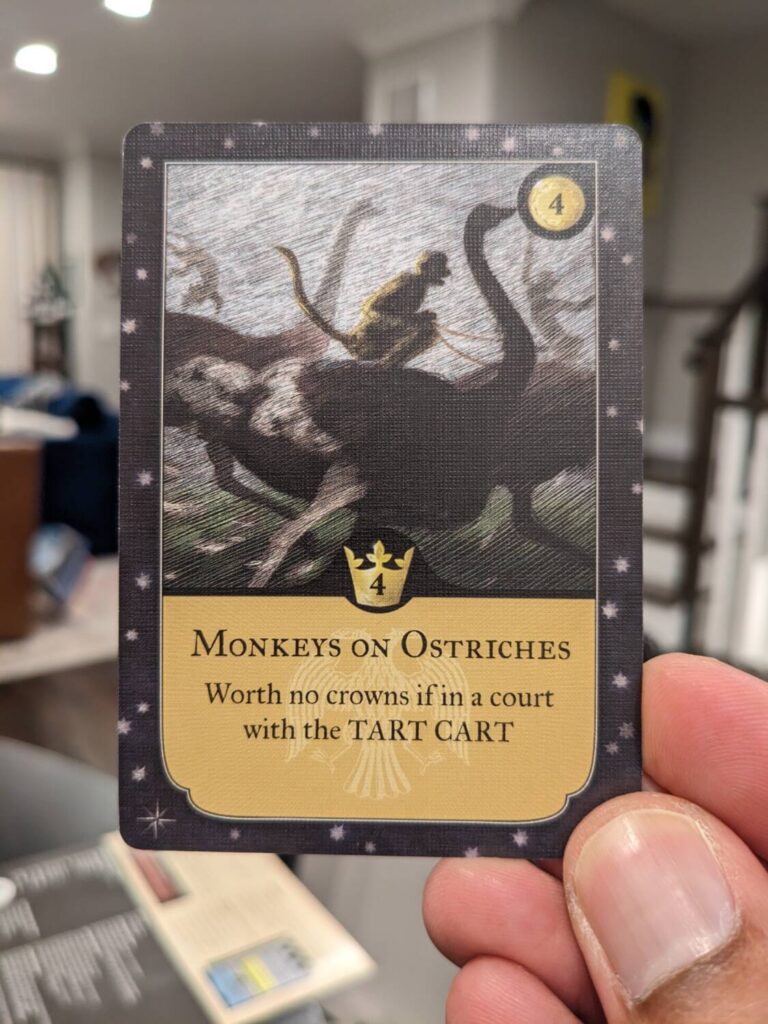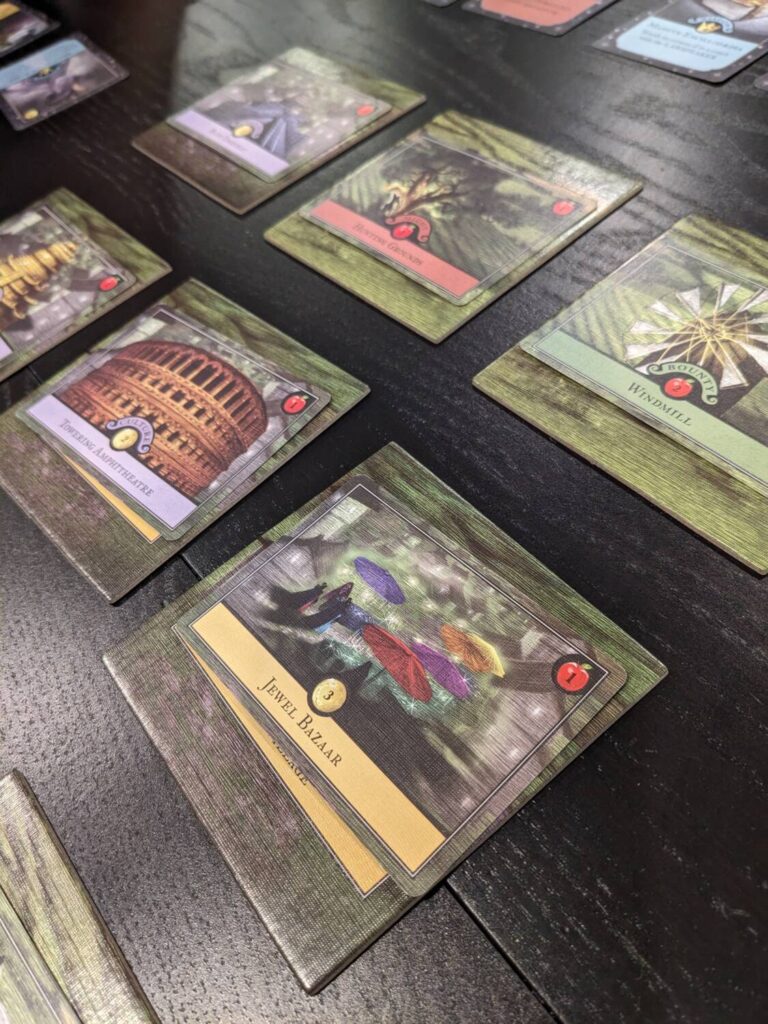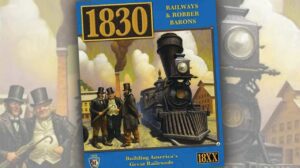Disclosure: Meeple Mountain received a free copy of this product in exchange for an honest, unbiased review. This review is not intended to be an endorsement.
Whenever I hear about a hit game from a publisher I don’t know as well, I like to take a moment to go back-catalog and learn more about what games made up their initial offerings.
Monarch, designed by Mary Flanagan (Surrealist Dinner Party, Phanton Ink, Visitor in Blackwood Grove) was originally published under Flanagan’s own LLC back in 2015. It is now a part of the Resonym catalog, so I requested a copy of Monarch when I met with a marketing rep at Resonym at last year’s Gen Con event.
I love looking at older games, and Monarch was no exception. A simple set of rules and a tidy box meant that accessibility was the priority here. The short play time and the artwork by Kate Adams didn’t hurt either!

Take the Throne
Monarch is a tableau building set collection game for 2-4 players; it plays in about 10 minutes per player. Each player is a sister vying to become the next monarch of Minervia. In order to take the throne, you’ll need to assemble a court of the best (highest scoring!) advisors, beasts and items from the game’s five different suits: Wisdom, Culture, Might, Bounty and Balance.
Play is extremely straightforward. I taught this game to two different audiences (my wife plus my Wednesday games crew) in less than five minutes thanks to the included player aids. Once per turn, players can either Harvest—taking a number of food from the supply equal to the number of Farm Boards in the current game’s 3×3 grid of board tiles—or Tax. Tax requires a player to spend food equal to the number of Village Boards, which then earns the active sister a number of gold equal to the yield of each village in the grid.
Then, players can buy any number of cards, paying a cost in the upper-left-hand corner of each card (usually gold), or wipe the market of five cards by spending three gold. On occasion, a Moon card shows up in the market; these minor events must be resolved immediately and do the things event cards do in every game. Sometimes, players have to pool resources to get something or avoid a penalty, or the Moon card might reward all players with a small allotment of food or gold.

The majority of cards are Court Cards, in one of the five suits described earlier. Each is worth a certain number of points at the end of the game, and often have rules tied to which other cards are in a player’s court (tableau). Since only seven cards can count towards end-game scoring (the acquisition of a seventh Court Card triggers the final round of play also), it pays to be choosy. Usually, the winner has done the best job of hoarding cards of one, maybe two suits, maximizing the value of every other card in a player’s possession.
The game’s rules push for the use of Banner tiles—a power that goes to a player that has at least two cards of a single suit in their Court—only after everyone is comfortable with the base game. We found that even players new to the hobby will enjoy having Banners included in every game, because it makes the entire affair a race to grab the best powers. Each Banner also contributes points to one of the five suits, so leaning harder into specialization becomes important with the inclusion of these tiles.
When games wrap up, scores are tallied. In my three plays (two separate two-player games, one four-player game), scores ranged from the high 30s to the low 50s, so Monarch is a low-scoring affair with scores that are easy to calculate. Still, I wish there had been a scorepad or score tracking tile included in the box. Players can lose points if another player “gifted” them with an Unwanted Guest card, so there are a couple ways to slow a player who appears to be in the lead.

The More Casual the Audience, the Better
Monarch elicited an interesting reaction from the four-player group, made up of gamers from my Wednesday night crew. The reaction? “Meh.”
Everyone appreciated the speed of play, but depending on a player’s seating position, there is going to be a decent amount of card text that must be read before selecting cards from the market. In a three- or four-player game, each player can only select one Banner per game, so there’s an early race to secure those Banners and if multiple players start their tableau with cards from the same suit, that will leave one or two people without a special power for a longer time period.
The group really loved the Unwanted Guests, particularly because it provided a way to target the player who had five Wisdom cards in his Court and four Wisdom cards in the 3×3 grid, which can be upgraded with cards from each suit to improve the yield of each Farm and Village Board tile during play. But otherwise, the general mood at the table was “it’s OK.”
The plays with my wife went much better for both of us. The game is lightning quick. We did two plays and a teach in less than 40 minutes. Since both of us were sitting over the cards, there’s not much needed to decipher the card text. In a two-player game, each player can have two Banner tiles, and the first Land Improvement card played on a turn can be played for free, which really accelerates the yield from the Harvest and Tax actions.
Monarch is recommended as a two-player game, and it’s a great “Weeknight Game”, to borrow a term from another peer in the content creation space. Setup and teardown is so quick that I can knock out a game while waiting for the dinosaur chicken nuggets to finish cooking in the oven while the kids are downstairs running around. And it’s a handsome production to boot.
Now I’m excited to see what Resonym has been up to since 2015!












My wife and I love good two-player games. This is one I will definitely be on the lookout for!